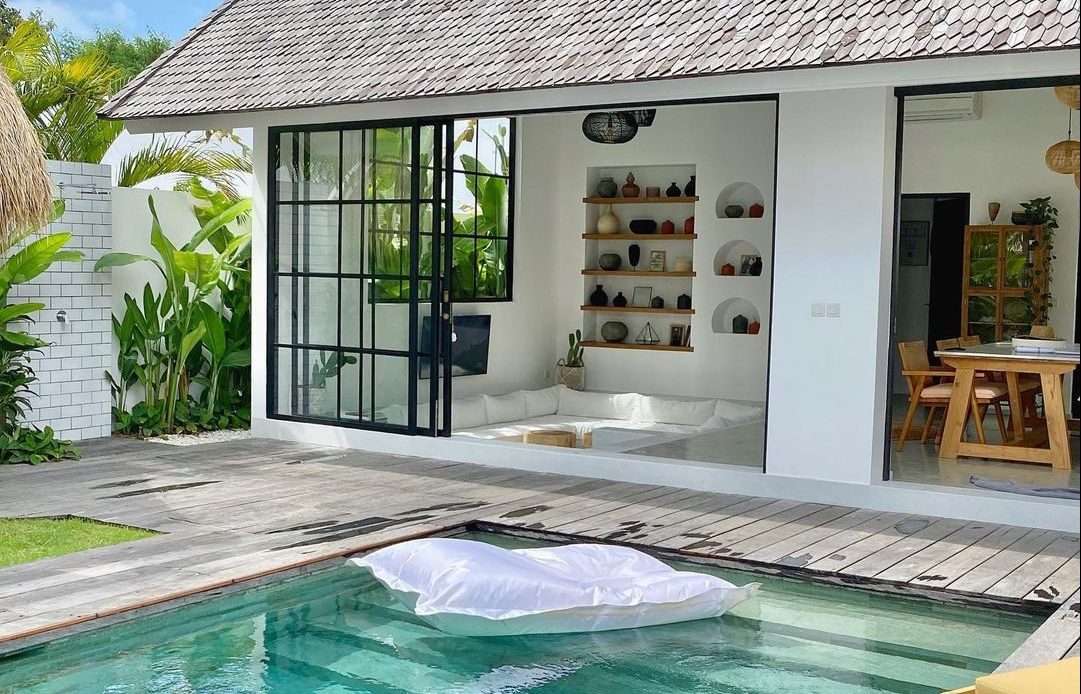The fantasy of owning a tropical villa or perhaps a small resort on the island of Bali has been haunting everyone for decades. It always starts with the notion that ‘one day I’ll move to Bali,’ which quickly evolves into, ‘I will own a home there.’ However, for most people, this dream is nothing more than a pipe dream. But we will bring you a little closer to the topic.
Why Bali?
Bali is one of the most attractive, diverse, and requested tourist destinations in the world. It’s also famous for its amazing beaches and rightly so. Its mix of rustic villages, modern cities, and ancient culture has made it one of the most comfortable climates you could find on earth. From white sand beaches to black sand beaches, Bali has A LOT to offer. Also, Bali is cheap to live in. This is the reason why ex-pats, digital nomads, and students from every corner of the globe have chosen Bali as their base while they travel the world working online.
Bali is not a secret anymore
Bali’s popularity has risen exponentially since the 1960s — when it was still an undiscovered paradise for a very elite few who frequented the area. But nowadays with around 7 million people visiting each year, people are starting to figure out that it’s more than just a place to get married. Bali intrigues its visitors by the special character of the place and also there’s always something new to see and explore, that’s why people are coming back to visit again.
Buying a home in Bali is very cheap compared to other costly destinations. The reason is that, as property prices continue increasing in the west, so do airfares to those locations. This means that prices remain steady or are decreasing in Bali while its less expensive alternatives, such as Vietnam and Cambodia, are becoming more expensive. House prices in Bali are amazing value, at least comparatively to almost anywhere else on the planet. Statistics show that this is the case. However, it can be difficult for ex-pats to find a house in Bali that they like because many properties available are aimed at the local market.
Housing is affordable on the island, and as an income earner, you can easily purchase a house or condominium using a low-down payment.
Also Buying a house in Bali can be an extremely lucrative investment that will give you a spectacular return on your investment (ROI). Put your money into buying a home in Bali and you could see a hefty ROI within 3 to 5 years.
When investing in Bali properties you should inform yourself beforehand to avoid mistakes. A great way to do this is the Investment Guide from The Young Villas. They have their experience of 15 years from construction and investments together and offer a great added value.
This guide that we can especially recommend is the comprehensive investment guide from The Young Villas & Invest in Bali, which helps you to navigate through the Bali Real Estate Market.
Reading this guide before investing will help you to avoid mistakes that can cost you tens of thousands of dollars on your project.
The guide will take you through the following topics:
- Buying land or an existing villa. Save money and time on consultations!
- Designing your villa. Make your property unique!
- Finding a builder. Build durable and high-quality property with no stress!
- Making contracts. Protect yourself legally!
- Marketing and branding your project. Set your project apart from the competition!
Interested in this guide? Take a look here
Save 20% with our Code: TROPITECTURE
Things you should pay attention to in any case:
Planned activities: Is the land suitable for planned activities? It is not always possible to obtain building permits if the area is used for agricultural purposes, for example. Notaries do not have the duty to verify the purpose of the land acquisition. The local administration office can often provide more information on this.
Ownership issue: especially with large Indonesian families, ownership can be complicated. If the land has already gone through several inheritance processes or if the owner only has old land documents, the whole family should be involved in the transaction process. Discussions with neighbors of the land or the village chief may also be helpful.
Property tax: Building permits and company licenses are usually obtained only when all taxes are paid. This point can be an important basis for price negotiations.
Companies, in particular, should exercise due diligence, as a notary is not obliged to carry out checks regarding the use of the land. As a rule, he or she only checks the ownership conditions and draws up the purchase and sale deed.
A credible notary licensed for the area and land as well as title deeds (PPAT) is essential for a transaction of this nature. Unfortunately, there are always great differences among notaries in terms of quality and knowledge of valid laws and regulations.









